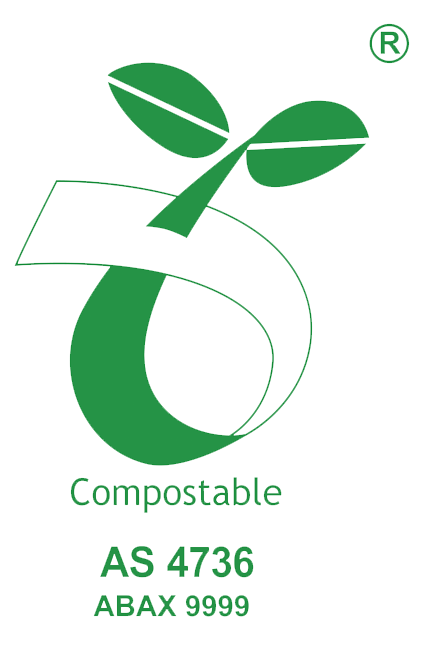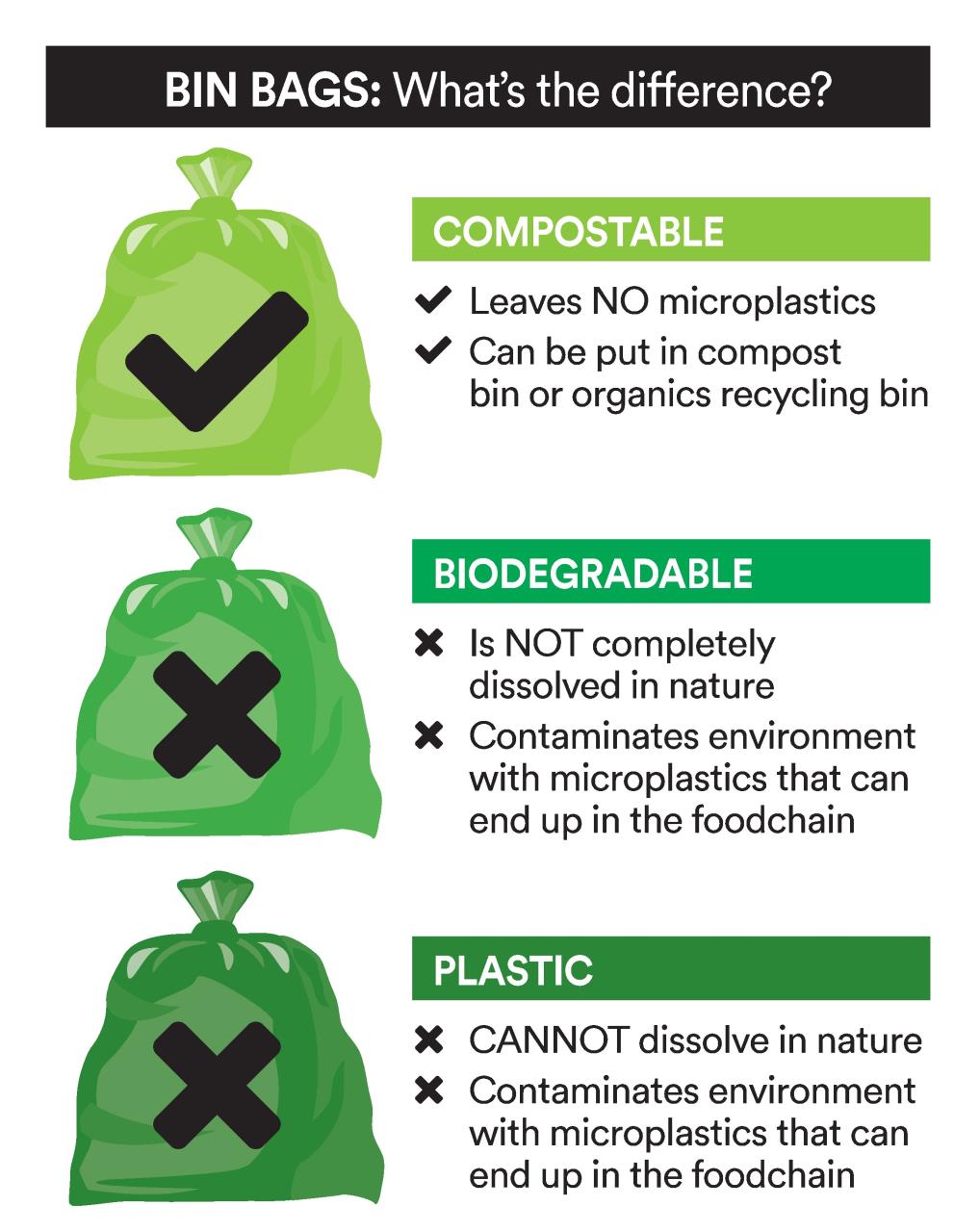Bin Bags... what's the difference?
When it comes to rubbish bags the terms biodegradable, recyclable and compostable are often used interchangeably but they do not mean the same thing.
Biodegradable
The term biodegradable actually doesn’t mean anything because everything is biodegradable eventually. Using the term biodegradable to describe plastic bags implies the plastic will decompose when it becomes waste. Although some bags labelled ‘green and degradable’ or ‘naturally degradable’ contain a chemical additive which makes them break down faster into smaller micro plastic fragments they are still made from normal plastic (polyethylene) so they are not in fact ‘green’ at all. They also don’t fully decompose in landfill because the required oxygen to decompose the product is too low nor does the process to create compost generate enough heat to decompose the plastic
Recyclable
Recyclable bags are also made from normal plastic (polyethylene) so they are basically the same as biodegradable bags. They will only break down into smaller micro plastic fragments if they contain a chemical additive triggered by oxygen or heat and therefore do not fully decompose in landfill.
Compostable
Compostable bags on the other hand are often made from farmed products such as cornstarch, which means the bag can break down into carbon dioxide, water, inorganic compounds and biomass in about 90 days. This rate is similar to items you might see in backyard compost such as leaves and paper. Compost works because millions of tiny microbes consume the waste and transform the organic material into compost.
Look for the compostable logo below on your bin bag packaging to ensure the product is indeed compostable.

